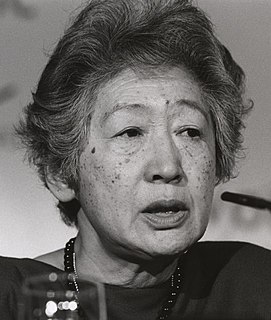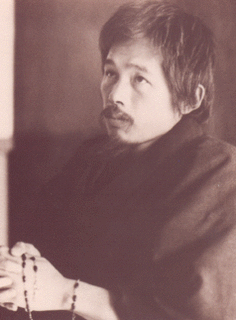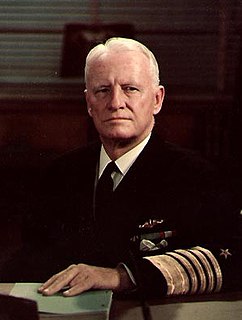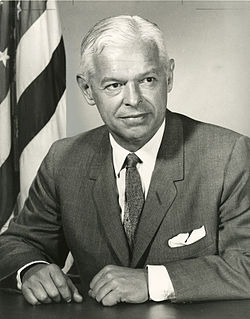A Quote by Oliver Stone
If we [Americans] are a strong people, a united people, why do we always have to hear how great we are? What is this self-love? Where does this come from? It got worse, because after the war we thought we'd won it. That's the first myth. Frankly, Russia won it. The Soviet Union sacrificed far greater form than anyone else to win that war. Secondly, we had the atomic bomb. We should not have dropped it on Japan. We did as an example to the Soviets, not to defeat Japan and to save American lives. These are myths that we explode with a lot of research early on.
Quote Topics
After
Always
American
Anyone
Anyone Else
Atomic
Atomic Bomb
Because
Bomb
Come
Defeat
Did
Does
Dropped
Early
Else
Example
Explode
Far
First
Form
Frankly
Got
Great
Greater
Had
Hear
How
Japan
Lives
Lot
Love
Myth
Myths
People
Research
Russia
Sacrificed
Save
Self
Self-Love
Should
Soviet
Soviet Union
Strong
Strong People
Than
Thought
Union
United
War
Why
Win
Worse
Related Quotes
I had been conscious a feeling of depression and so I voiced to [Secretary Of War Stimson] my grave misgivings, first on the basis of my belief that Japan was already defeated and that dropping the bomb was completely unnecessary, and secondly because I thought that our country should avoid shocking world opinion by the use of a weapon whose employment was, I thought, no longer mandatory as a measure to save American lives. It was my belief that Japan was, at this very moment, seeking a way to surrender with a minimum loss of 'face.'
So far as I can see, the atomic bomb has deadened the finest feeling that has sustained for ages. There used to be so-called laws of war, which made it tolerable. Now we know the truth. War knows no law except that of might. The atomic bomb brought an empty victory but it resulted for the time being in destroying the soul of Japan. What has happened to the soul of the destroying nation is yet too early to see.
Revolutionary war is an antitoxin that not only eliminates the enemy's poison but also purges us of our own filth. Every just, revolutionary war is endowed with tremendous power and can transform many things or clear the way for their transformation. The Sino-Japanese war will transform both China and Japan; provided China perseveres in the War of Resistance and in the united front, the old Japan will surely be transformed into a new Japan and the old China into a new China, and people and everything else in both China and Japan will be transformed during and after the war.
World War Two was a world war in space. It spread from Europe to Japan, to the Soviet Union, etc. World War Two was quite different from World War One which was geographically limited to Europe. But in the case of the Gulf War, we are dealing with a war which is extremely local in space, but global in time, since it is the first 'live' war.
Japan suffered terribly from the atomic bomb but never adopted a pose of moral superiority, implying: 'We would never have done it!' The Japanese know perfectly well they would have used it had they had it. They accept the idea that war is war; they give no quarter and accept none. Total war, they recognize, knows no Queensberry Rules. If you develop a devastating new weapon during a total war, you use it; you do not put it into the War Museum.
The atom bomb was no “great decision.” It was used in the war, and for your information, there were more people killed by fire bombs in Tokyo than dropping of the atomic bombs accounted for. It was merely another powerful weapon in the arsenal of righteousness. The dropping of the bombs stopped the war, save millions of lives.
Japan's diplomatic efforts could have had a broader international perspective. Relations with the U.S. are, of course, the cornerstone of Japan's diplomacy, but the U.S. acts on its global strategy. For instance, Washington suddenly got closer to China in the early 1970s as part of its strategy against the Soviet Union.
We know what we want. To us it means nothing that there is a Soviet Union somewhere in the world, for the sake of whose peace and tranquility the workers of Germany and China were sacrificed to Fascist barbarians by Stalin. We want revolution here in Spain, right now, not maybe after the next European war. We are giving Hitler and Mussolini far more worry with our revolution than the whole Red Army of Russia. We are setting an example to the German and Italian working class on how to deal with Fascism.
Men and women of the world, never again plan war! With this atomic bomb, war can only mean suicide for the human race. From this atomic waste the people of Nagasaki confront the world and cry out: No more war! Let us follow the commandment of love and work together. The people of Nagasaki prostrate themselves before God and pray: Grant that Nagasaki may be the last atomic wilderness in the history of the world.
European peace movement felt that the deployment of these missiles on European soil, on German soil would be a very great danger towards the Soviet Union in that those missiles could reach the Soviet Union, make it vulnerable within five to six minutes, that it could surgical strikes, strikes into the military infrastructure and that a strike into the military infrastructure could cause in fact World War III, an atomic world war and that this could also be used for first strike, for surgical search, first strike into the Soviet Union.
What is a war criminal? Was not war itself a crime against God and humanity, and, therefore, were not all those who sanctioned, engineered, and conducted wars, war criminals? War criminals are not confined to the Axis Powers alone. Roosevelt and Churchill are no less war criminals than Hitler and Mussolini. England, America and Russia have all of them got their hands dyed more or less red - not merely Germany and Japan.
Based on a detailed investigation of all the facts and supported by the testimony of the surviving Japanese leaders involved, it is the Survey's opinion that certainly prior to 31 December 1945 and in all probability prior to 1 November 1945, Japan would have surrendered even if the atomic bombs had not been dropped, even if Russia had not entered the war, and even if no invasion had been planned or contemplated.
With respect to the creation of the program, I introduced the bill in September 1945, immediately after the end of the war with Japan, in August of that year. A number of considerations, of course, entered into my decision to introduce the bill, growing from my own experience as a Rhodes scholar and the experiences our government had had with the first Word War debts, [Herbert] Hoover's efforts in establishing the Belgian-American Education Foundation after World War I, [and] the Boxer Rebellion indemnity.






































